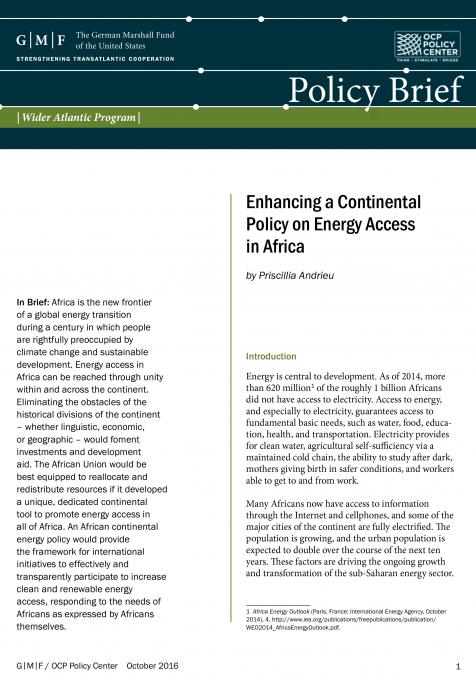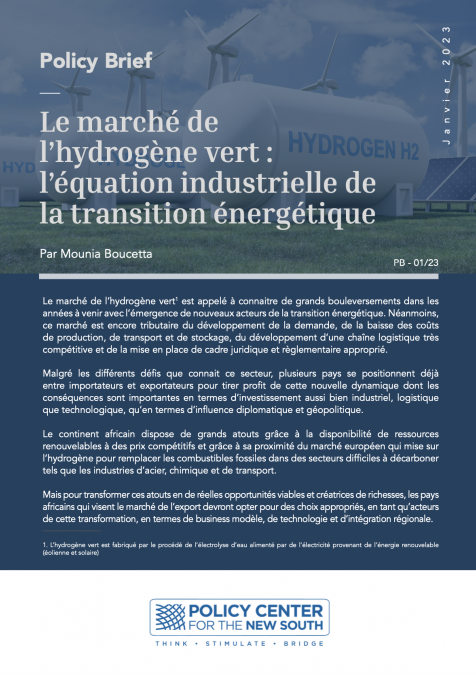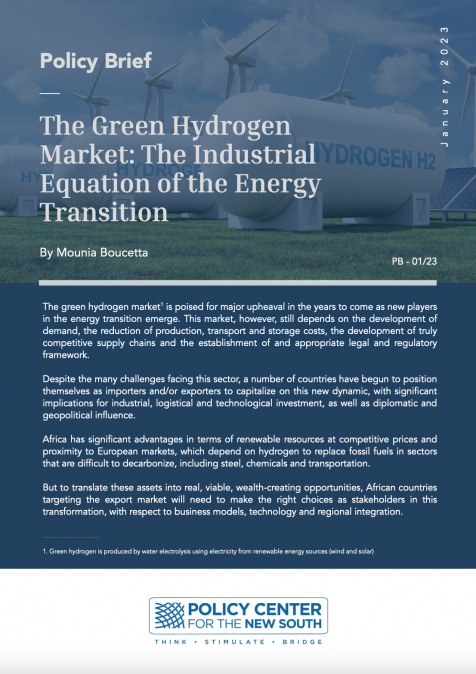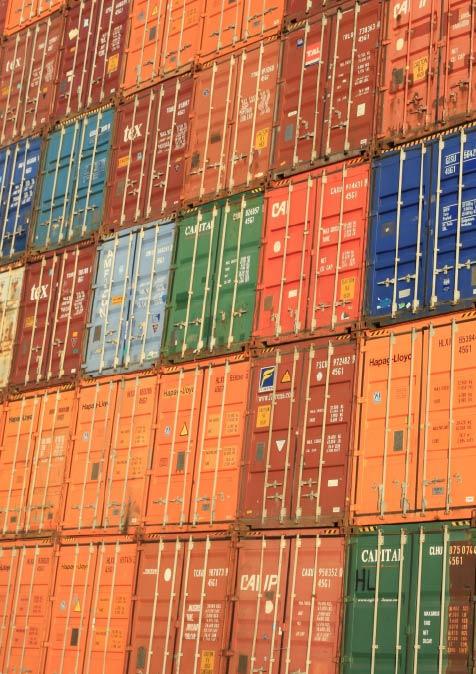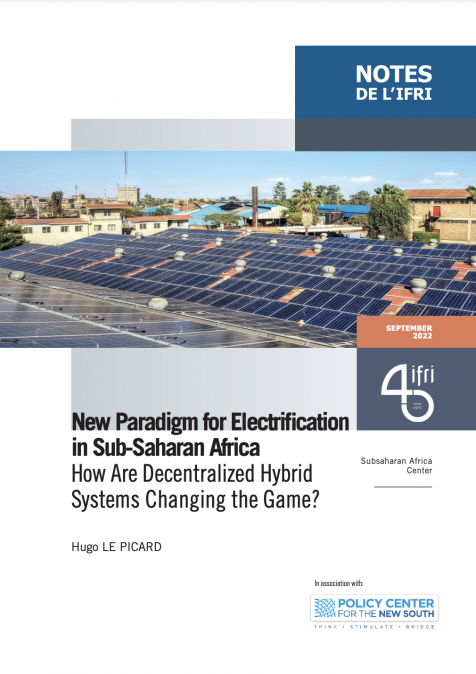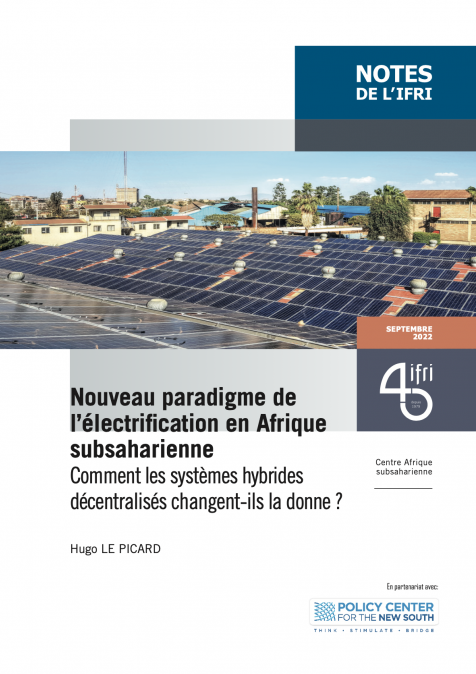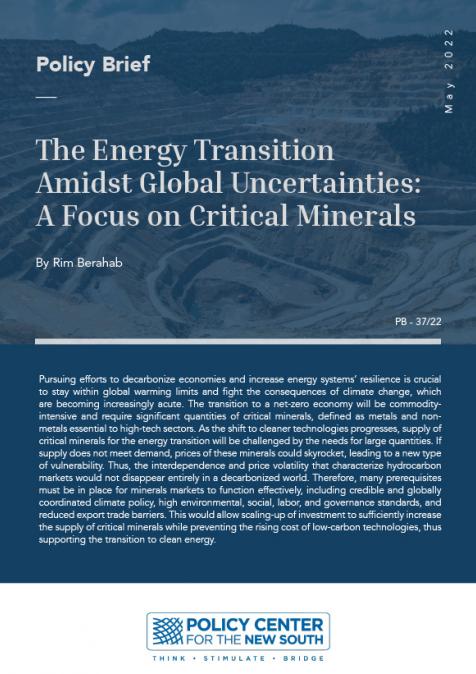Publications /
Policy Brief
Africa is the new frontier of a global energy transition during a century in which people are rightfully preoccupied by climate change and sustainable development. Energy access in Africa can be reached through unity within and across the continent. Eliminating the obstacles of the historical divisions of the continent – whether linguistic, economic, or geographic – would foment investments and development aid. The African Union would be best equipped to reallocate and redistribute resources if it developed a unique, dedicated continental tool to promote energy access in all of Africa. An African continental energy policy would provide the framework for international initiatives to effectively and transparently participate to increase clean and renewable energy access, responding to the needs of Africans as expressed by Africans themselves.

